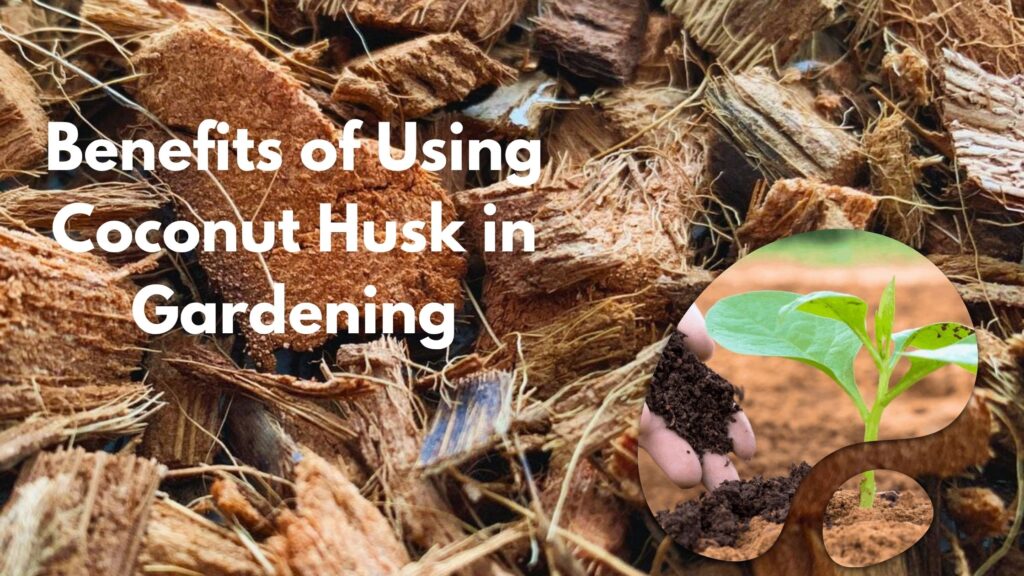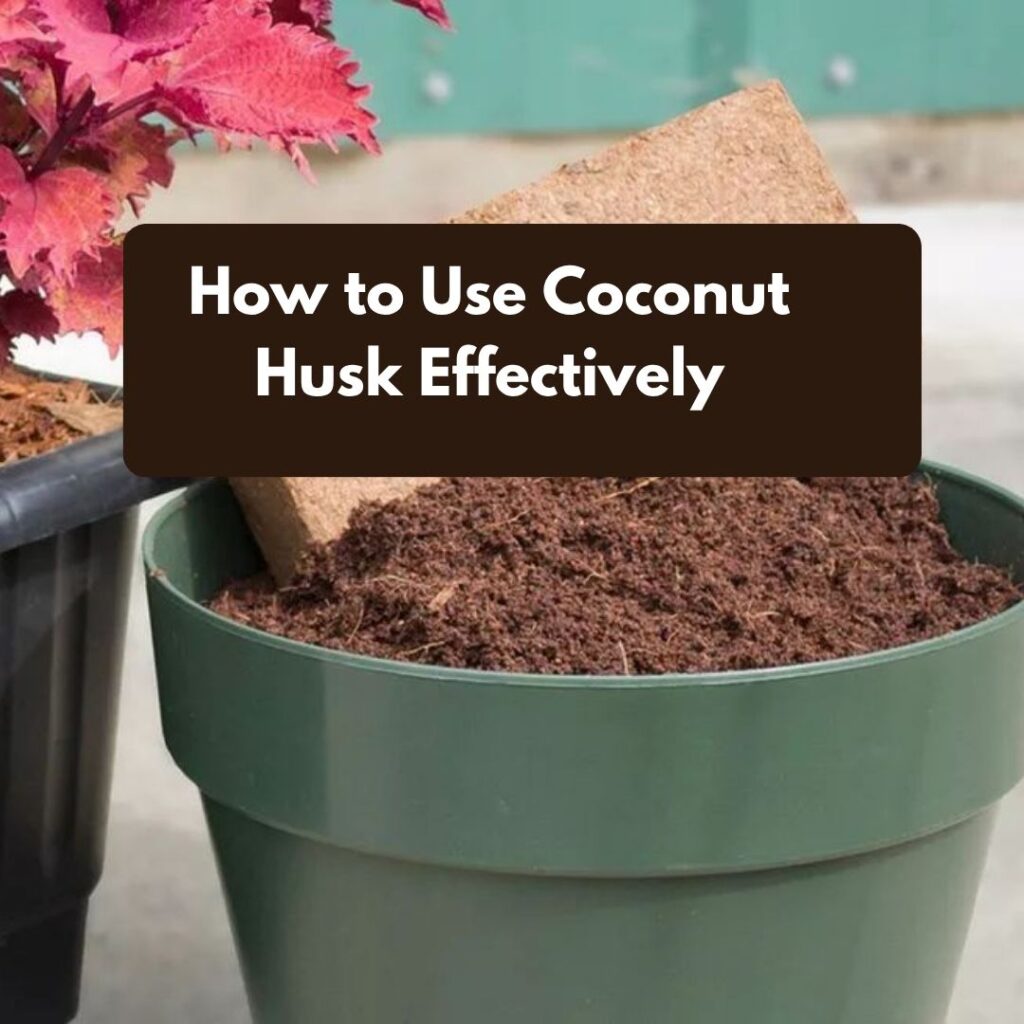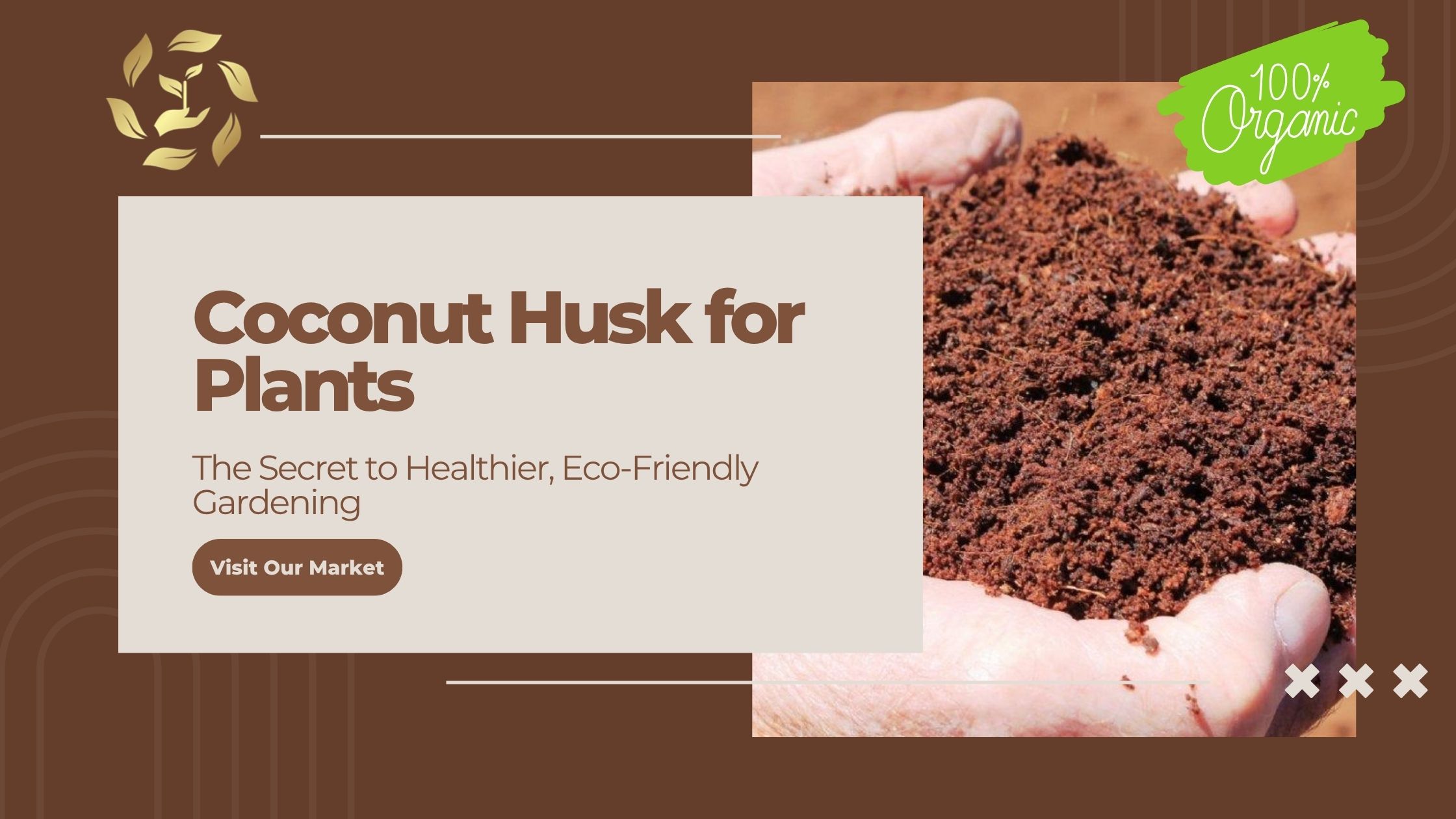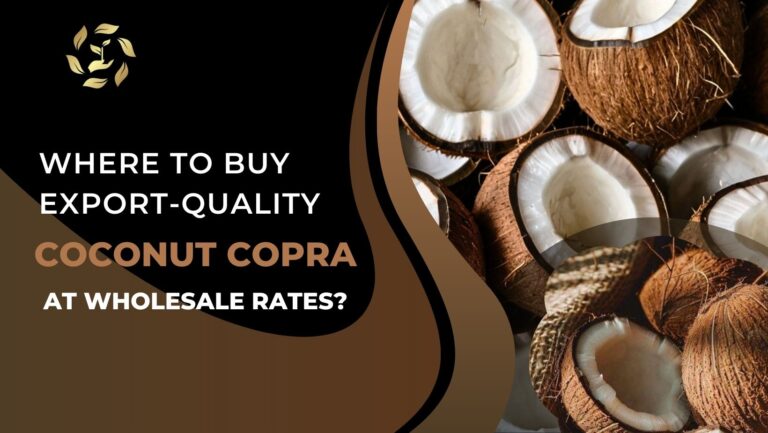When it comes to creating a healthier, eco-friendly garden, few materials can match the magic of coconut husk for plants. This natural, sustainable growing medium has quietly become every gardener’s secret weapon. Whether you’re a hobbyist or a professional grower, using coconut husk for plants helps you improve soil structure, retain moisture, and support robust root growth — all while being completely biodegradable and eco-conscious.
If you’re tired of dealing with compacted soil or inconsistent watering, coconut husk for plants offers the perfect solution. It’s light, airy, and sustainable — the ultimate alternative to chemical-based soil additives.
What Makes Coconut Husk So Special for Gardening?
Coconut husk is the fibrous outer layer of the coconut, often considered waste in traditional processing. But smart gardeners know its value. When processed properly, it transforms into natural coconut husk mulch for garden plants, helping maintain optimal soil aeration and moisture levels.
Its texture promotes air circulation around the roots, prevents fungal buildup, and allows water to drain evenly — creating a healthy environment for every plant. Whether you grow herbs, flowers, or vegetables, organic coconut husk chips for gardening can make a visible difference in growth and yield.
Many modern gardeners prefer it over traditional peat because it’s renewable, eco-friendly, and doesn’t harm the environment — making it a sustainable coconut husk alternative to peat moss.
Coconut Coir Products: A Versatile Gift from Nature
Coconut husk is part of a wider family of coconut coir products, all derived from the humble coconut. From coir mulch mats to cocopeat blocks, each form helps gardeners cultivate healthier plants while promoting sustainability. These natural products are redefining the way we think about soil and plant health.
For large-scale growers and nurseries, sourcing from a bulk coconut husk supplier for nurseries ensures consistent quality and cost-effective gardening. With proper use, these natural fibers enhance soil texture, increase porosity, and provide long-term benefits to soil fertility.
Benefits of Using Coconut Husk in Gardening
Let’s explore why coconut husk is quickly becoming the favorite medium among gardeners and professionals alike:

1. Superior Water Retention
Coconut husk absorbs and retains water up to 8–10 times its weight. This keeps soil moist longer, reducing the need for frequent watering — especially useful in India’s varying climates.
2. Improved Aeration
Thanks to its fibrous structure, air flows easily around roots, preventing compaction and promoting faster plant growth.
3. pH Balanced and Nutrient-Rich
Coconut husk maintains a neutral pH, which makes it compatible with most plants. Plus, it’s rich in potassium and micronutrients.
4. Eco-Friendly and 100% Biodegradable
Using 100% biodegradable coconut husk for gardening means you’re not just helping your plants — you’re helping the planet. It naturally decomposes without polluting soil or groundwater.
5. Perfect Mulch Material
When used as natural coconut husk mulch for garden plants, it prevents weed growth and regulates soil temperature.
6. Cost-Effective and Sustainable
Since coconuts are abundantly available in India, it’s a cost-effective growing medium for both small gardeners and large nurseries.
Different Forms of Coconut Husk You Can Use
Coconut husk comes in various forms depending on your gardening needs:
- Coconut Husk Chips: Great for orchids, anthuriums, and potted plants that need aeration.
- Coconut Husk Mulch: Ideal for moisture retention and weed control in garden beds.
- Compressed Coconut Husk Blocks for Plants: Perfect for easy storage and rehydration before use.
- Coir Husk Substrate for Plant Growth: A fine-grade husk medium for germination and root development.
If you’re running a commercial nursery, choosing wholesale coconut husk for plant nurseries ensures consistent, high-quality substrate for bulk planting.
Why Coconut Husk Is a Sustainable Alternative to Peat Moss
Peat moss, a popular gardening medium, is extracted from wetlands — a process that takes thousands of years to regenerate and harms ecosystems. In contrast, coconut husk is a sustainable coconut husk alternative to peat moss, sourced from renewable coconut production.
By switching to coconut husk, you not only enhance plant health but also contribute to sustainable agricultural practices that reduce carbon footprints.
How to Use Coconut Husk Effectively
Here’s how to make the most of your coconut husk in everyday gardening:

- Soak Before Use:
Compressed husk blocks expand when soaked in water for 30–40 minutes. - Mix with Soil:
Blend husk with garden soil or compost in a 1:1 ratio for improved aeration. - Use as Mulch:
Spread around the base of plants to conserve moisture and suppress weeds. - Combine with Cocopeat:
Pairing husk with Cocopeat 5kg blocks exporter–grade cocopeat gives excellent results in root growth and water management. - Replenish Periodically:
Refresh your husk layer every season to maintain soil balance and structure.
If you’re wondering how to use cocopeat block or how to use cocopeat for plants, it works perfectly alongside husk — cocopeat retains moisture while husk ensures aeration. Together, they form the ideal eco-growing duo.
India’s Role in Coconut Product Exports
India is one of the world’s largest producers of coconut-based materials. From coconut products export from India to organic gardening solutions, Indian exporters are leading the way toward sustainable global agriculture.
Companies like Asia Flock contribute by providing eco-friendly substrates like coir husk and cocopeat that support green farming worldwide.
Did You Know About the Benefits of Coconut Water for Skin?
While coconut husk supports plant health, the benefits of coconut water for skin are equally impressive — offering hydration, nourishment, and a natural glow. The coconut truly is nature’s all-in-one gift!
Where to Buy the Best Coconut Husk for Plants Online in India
If you’re planning to buy coconut husk for plants online in India, look for trusted suppliers who offer 100% organic, untreated husk products. Reliable platforms ensure premium quality, moisture-tested husk ideal for gardens, nurseries, and farms.
Bulk orders from a bulk coconut husk supplier for nurseries can help you save costs while ensuring consistent quality for large-scale gardening projects.
For eco-conscious gardeners, choosing an eco-friendly plant growing media coconut husk guarantees sustainability and long-term soil health.
Switching to coconut husk for plants is one of the smartest choices you can make for a greener, healthier garden. It’s sustainable, biodegradable, and designed by nature to help your plants thrive. Whether you’re a beginner gardener or managing a full-scale nursery, coconut husk is your key to eco-friendly success.
Ready to transform your garden naturally?
Explore premium-quality coconut husk and cocopeat products from Asia Flock — your trusted partner in sustainable gardening. Visit our store today and make the switch to greener growth!
Key Takeaways
- Coconut husk for plants enhances soil aeration, moisture retention, and root health.
- 100% biodegradable and renewable — a true eco-friendly plant growing media.
- Serves as a sustainable alternative to peat moss, reducing environmental harm.
- Available in multiple forms — chips, mulch, and compressed blocks.
- Perfect for nurseries, home gardens, and commercial growers.
- Complements cocopeat for maximum plant growth efficiency.
Frequently Asked Questions
Q1. What are the benefits of using coconut husk for plants?
Coconut husk improves soil aeration, retains moisture, prevents compaction, and promotes healthy root growth — making it ideal for sustainable gardening.
Q2. How do I prepare coconut husk before using it in soil?
Soak compressed husk blocks in water for 30–40 minutes until they expand. Then mix with soil or compost for best results.
Q3. Is coconut husk better than peat moss?
Yes! Coconut husk is renewable, eco-friendly, and supports soil biodiversity — unlike peat moss, which takes centuries to form.
Q4. Can I use coconut husk for all types of plants?
Absolutely. From indoor houseplants to vegetables and flowers, coconut husk supports almost every type of plant.
Q5. Where can I buy coconut husk for plants online in India?
You can easily buy coconut husk for plants online in India from trusted suppliers like Asia Flock, offering premium-quality, organic husk for gardening and nursery applications.


